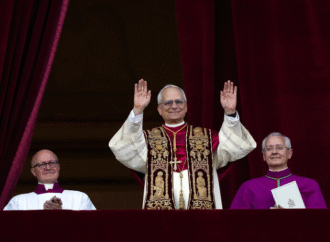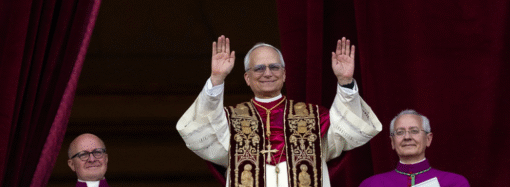Taken as a whole, however, without shared common principles our society is a ship on the high seas without a helmsman, maps, or compass.
And all must love the human form,
In heathen, Turk, or Jew;
Where Mercy, Love, and Pity dwell
There God is dwelling too.
Poet William Blake’s “Mercy, Love, and Pity” seem in short supply today. Visit social media, read blogs and online commentaries—including some of my own—and mercy, love, and pity seem as absent as President Biden’s cognitive powers. (There: You see what I mean?)
For well over a millennium, the Christian faith promoted these and other virtues. In point of fact, the institutions founded by Christians which helped form and build Western culture—hospitals, colleges, schools, and charities—embodied these ideals in brick-and-mortar. Eventually, Christianity helped abolish slavery, promoted equality, supported the arts and early scientific endeavors, and despite what so many critics claim, often acted as a protector and advocate for women.
But surely Christianity’s greatest gift to mankind was the system of moral theology on which it rested. Quite often, that system failed to prevent—and sometimes abetted—evil, bloodshed, and war, and its tenets were repeatedly ignored, abused, and twisted out of shape. Today’s detractors point out these many flaws with ease.
Yet the core of this Western morality remained intact, revolving around the Decalogue (Ten Commandments) and other Old Testament teachings, as well as the words of Christ in the New Testament enjoining us to care for the poor and the hungry, to love our neighbor, and to serve God with our hearts, and minds, and souls.
In America and abroad, the tides of modernity and secularism have slowly washed that code away over the last century. It has all but disappeared from our public square, and in many cases, even to mention God in certain company is to risk losing friends or being considered at best a crank.
As evidence of this demise, we need look only at the Decalogue. We no longer keep the Sabbath Day holy. Given the recent attacks on our founders and other noted American men and women, it seems we no longer honor our mothers and fathers. Murders, late-term abortions, and our continual wars have buried the law “Thou shalt not kill.” Committing adultery is only one of our multiple sexual practices. Many of us, whether in riots or serving as members of Congress, steal without compunction, and the injunctions against envy have given way to class and racial strife.
For many people, I suspect, the First Commandment, which directs us to honor God, is no longer even a whisper in the heart. Some have replaced God with politics, reckoning that government or ideology will lead them down the road to salvation and heaven on earth. These true believers ignore the countries—Russia, Cambodia, and so many others—that have driven this same highway in the last century, eventually smashing into a wall, but only after murdering millions. Others have toppled God, erecting and worshiping self instead, which, given the foibles of human nature, is an enterprise equally doomed to failure.
This is not to say that Americans are unkind or miserly. Every day I see my fellow citizens treating one another with respect, helping others and going out of their way to do a good turn. A recent example of this in my own life happened when a fall left me with three broken ribs and a friend stepped up and cared for me for a week.
Taken as a whole, however, without shared common principles our society is a ship on the high seas without a helmsman, maps, or compass. One example of this chaos—and there are many, many others—may be found in the current upheaval regarding the Supreme Court and Roe v. Wade. Enraged that the justices may overturn this ruling, rabid leftists have attacked churches and pro-life centers and issued vicious threats, all the while ignorantly believing that this reversal will end abortion in our country. You won’t find civility in this mob, much less mercy.
The rot in our cultural foundations runs deep, and a sea-change in religious sensibility seems unlikely, yet the distant past does provide a ray of hope—another Christian virtue. In the late Roman Empire, many people converted to Christianity in part because of its promises of salvation and eternal life, but also because they witnessed Christians practicing their beliefs in ways that ran counter to the prevailing culture of violence, misery, and death. They saw men, women, and children living out their faith, and in some cases dying for it. They saw a religion that gentled the human condition.
If like those ancient examples, today’s Christians—and for that matter, non-believers as well—live by a code that respects the dignity of the human person, spurning the ugliness, deformity, and despair endemic in so much of society and serving as models to those around them, those guttering flames of our culture may remain afire.
And who knows? Perhaps decades, even a century from now, those exemplars and their descendants will spark a bonfire of renewal.
—
Image Credit: Pixabay
3 comments















3 Comments
Helen Prien
May 12, 2022, 10:50 pmDo not despair. Their are excellent young people preparing to be the vanguard of renewal (if they survive the Persecution). My four nieces, their husbands and children (only one so far) are intelligent, fully faithful and practicing Christians, eyes and hearts wide open, but under no illusions. I pray for them constantly and all their friends as we their tired and beaten down elders pass the baton.
REPLYFred@Helen Prien
May 13, 2022, 11:42 pmOne of the most insightful and relevant columns from you ever. You strike at the core of the problem. But also offer a solution. And I say a hearty "AMEN!" to every word mentioned above. Thanks for being truthful and bold in your comments. I love everything you write. And this column was exceptional.
REPLYdoug asbrock
May 15, 2022, 12:34 pm"…..a religion that gentled the human condition….." very nice, well said
REPLY